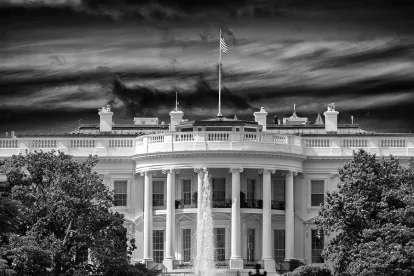On January 20, 2018, the federal government entered into a partial shutdown following Congress’s failure to reach an agreement to continue funding the federal government. Certain federal agencies that rely solely on government funding will not be able to provide most services. Agencies that receive funding from fees or other government sources are expected to remain open, but are expected to experience service delays. Immigration processes are expected to be impacted by the shutdown, as summarized below.
U.S. Citizenship and Immigration Services
The U. S. Citizenship and Immigration Services (USCIS) and its worldwide locations are likely to remain open. USCIS is funded in significant part by filing fees from users, and many of its activities are deemed “exempt” from closure during a shutdown. According to USCIS’s most recent government shutdown contingency plans, of USCIS’s 17,120 employees, an estimated 16,781 will continue to work during a lapse in appropriations.
Immigration Filings
USCIS will continue to process most sponsorship petitions and other applications for immigration benefits. Nevertheless, USCIS will likely suffer delays since other federally funded government agencies, such as the U.S. Department of Labor (DOL), provide information required for some USCIS filings.
Certain types of filings are either suspended or otherwise affected by the shutdown, including EB-5 (immigrant investor) Regional Center Programs, the Conrad 30 Program for J-1 physicians, and green cards for nonminister religious workers.
E-Verify
USCIS has announced that E-Verify, Self Check, and Self Lock services are temporarily suspended during the shutdown; however, the USCIS E-Verify website will remain online to provide resources.
USCIS is expected to make appropriate accommodations to help businesses maintain compliance, for example, by suspending the “three-day rule” associated with the E-Verify process and extending the time period during which employers may resolve Tentative Non-Confirmations (TNCs).
Despite the unavailability of E-Verify, compliance with Form I-9 requirements continues to be mandatory. Employers that use an electronic Form I-9 system that is interconnected with E-Verify will still be required to timely complete the Form I-9 portion of the employment verification process (and complete the E-Verify portion upon availability of the system).
U.S. Department of Labor
Unlike the USCIS, the DOL does not receive fees for the immigration-related functions it performs, and the shutdown will result in a cessation of a large portion of the DOL’s operations. Most immigration-related DOL functions fall under the jurisdiction of the Employment and Training Administration (ETA). According to the DOL’s most recent government shutdown contingency plans, the number of ETA employees who will continue to work will be reduced from 1,145 to 17, and most ETA activities will be shut down. Specifically, the following programs will be impacted.
PERM
Processing of permanent labor certification (PERM) applications and prevailing wage requests are suspended until funding is restored. Delays in processing applications and requests and agency backlogs are likely to increase after the federal government’s financing is restored.
H-1B, H-2,and E-3
The shutdown impacts any visa process that requires a Labor Condition Application (LCA) or prevailing wage determination, such as an H-1B or H-2 visa. In the past, USCIS has been flexible in accepting petitions even when the DOL could not provide the underlying LCA certification. However, applicants for E-3 visas who are unable to obtain a certified LCA will be unable to apply for an E-3 visa at a U.S. Consulate.
U.S. Department of State
U.S. Department of State (DOS) entities will continue to operate until their respective balances are insufficient to continue. During a lapse in appropriations, the DOS draws upon remaining available appropriations balances, trust funds, other permanent appropriations, fees, and a working capital fund to continue operations as long as such funding is available.
Visa Applications
Consular operations domestically and overseas will remain operational as long as there are sufficient fees to support operations. U.S. Consulates will likely continue to process visa applications. However, because consulates receive federal funding in addition to funding through fees, it is unclear how long consulates would be able to sustain visa services following a government shutdown.
Passports
If a passport agency is located in a government building affected by the government shutdown, the passport agency may become unsupported.
U.S. Customs and Border Protection
The federal government deems U.S. Customs and Border Protection (CBP) officers to be essential personnel who are largely exempt from ceasing operations due to their law enforcement function and role in securing the nation’s borders. According to the CBP’s most recent government shutdown contingency plans, of the CBP’s 59,082 employees, an estimated 53,903 will continue to work during a lapse in appropriations.
Port-of-Entry Operations
It is unlikely that port operations will be significantly impacted by a shutdown. Travelers will likely be able to request entry, be inspected, and be admitted as usual with minimal deviation from normal practices.
Canadian Border Applications
Because ports of entry will remain open, border ports will likely continue processing Canadian nonimmigrant petitions, however it is also possible that processing may be impacted.
U.S. Immigration and Customs Enforcement
Similar to CBP, U.S. Immigration and Customs Enforcement (ICE) personnel are largely exempted from ceasing operations due to their law enforcement function. According to ICE’s most recent government shutdown contingency plans, of ICE’s 19,766 employees, an estimated 15,411 will continue to work during a lapse in appropriations.
Enforcement Activities
ICE will continue its enforcement and removal activities. It is likely that ICE attorneys will focus on their detained docket (i.e., foreign nationals currently in custody) during the shutdown.
Foreign Students and Exchange Visitors
ICE operates the Student and Exchange Visitor Program (SEVP), the program responsible for monitoring foreign students and their dependents to ensure rules and regulations pertaining to their student status are being followed. Because SEVP is funded by fees, it is not likely to be impacted by the shutdown.
Other Considerations
In addition to the impact on government agencies as described above, the government shutdown will entail other immigration-related concerns.
Security Checks
Because security checks are administered by various federal government agencies that are affected by the shutdown, security checks—which are required for all visa applications at U.S. consulates and for some USCIS applications—are likely to be delayed.
Social Security Numbers
The U.S. Social Security Administration’s most recent government shutdown contingency plan indicates that it will discontinue processing of applications for original or replacement Social Security cards. An employee may begin working without a Social Security number. However, an employee’s ability to obtain other benefits without a Social Security number may be limited.
State Benefits
State governments that use federal databases to verify a foreign national’s immigration status will likely have reduced access to those databases during the shutdown. The shutdown is likely to cause delays or suspensions of service from state agencies, including in the processing of driver’s license applications. H-1B LCA processing delays could cause applicants to be unable to renew their driver’s licenses in states that will only renew licenses based on USCIS H-1B approval notices.
Government Contractors
Employers that have H-1B employees assigned to work on government contracts may be affected should such employees be subjected to furloughs due to regulations requiring continued payment of required wages to H-1B employees in most instances of nonproductive status. In many instances, employers may require affected H-1B employees to use their accrued vacation time during a furlough. However, if the shutdown is prolonged, it could cause H-1B workers to exhaust the vacation time that they have accumulated, in which case employers will need to continue to pay their H-1B employees’ salaries through the remainder of a furlough (or terminate the employment relationship).




 />i
/>i

